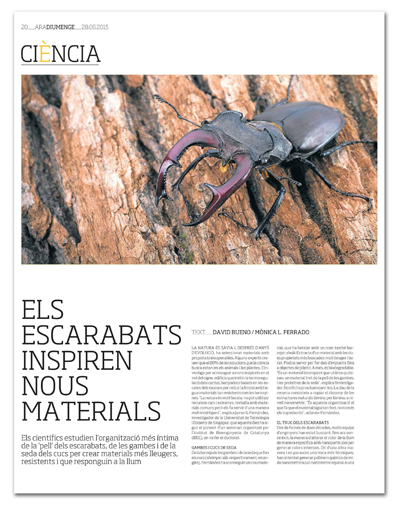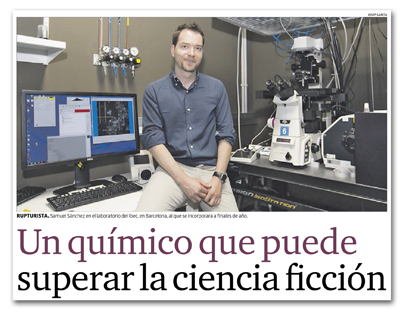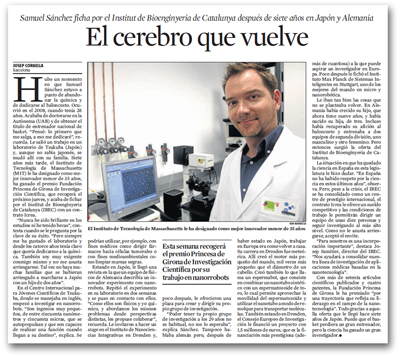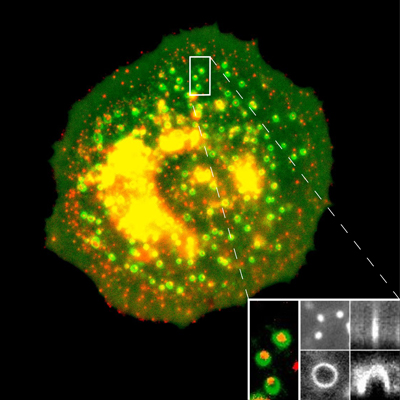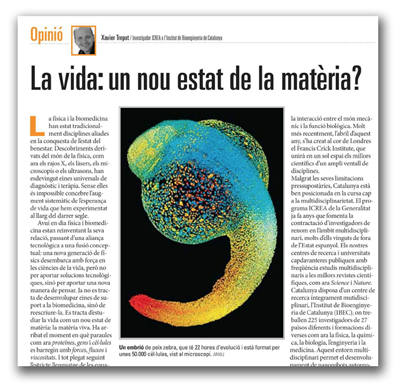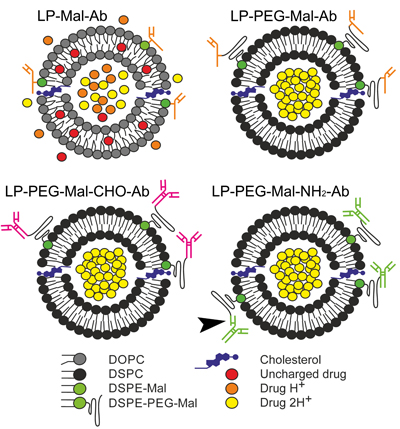Search Results for:
IBEC Seminar: Marc Martí-Renom
Structure determination of genomes and genomic domains by satisfaction of spatial restraints
IBEC Seminar: Marc Martí-Renom
Structure determination of genomes and genomic domains by satisfaction of spatial restraints
8th IBEC Symposium
8th IBEC Symposium: Bioengineering for Regenerative Therapies
8th IBEC Symposium
8th IBEC Symposium: Bioengineering for Regenerative Therapies
“Un químico que puede superar la ciencia ficción”
 IBEC group leader Samuel Sánchez was the subject of an article in El Periódico on Tuesday.
IBEC group leader Samuel Sánchez was the subject of an article in El Periódico on Tuesday.
“El cerebro que vuelve”
 An article about new IBEC group leader Samuel Sanchez by Josep Corbella in La Vanguardia yesterday talks about the ‘brain gain’ of having the nanotechnologist return to Catalonia after several years in Japan, the USA and Germany.
An article about new IBEC group leader Samuel Sanchez by Josep Corbella in La Vanguardia yesterday talks about the ‘brain gain’ of having the nanotechnologist return to Catalonia after several years in Japan, the USA and Germany.
How cells cope with stress and strain
 A study by the Institute for Bioengineering of Catalonia (IBEC) reveals how cells withstand breakage during the constant changes in shape and volume experienced in most biological processes
A study by the Institute for Bioengineering of Catalonia (IBEC) reveals how cells withstand breakage during the constant changes in shape and volume experienced in most biological processes
During critical biological processes such as embryonic development, breathing, the pumping of the heart, wound healing and tumor growth, the body’s cells are stretched and distorted to adapt to their environment. The cell’s membrane, though, is rigid and inflexible. So how does it withstand all these constant deformations, so that it doesn’t break?
“La vida: un nou estat de la matèria?”
 An opinion piece by Xavier Trepat appears in the current edition of El Punt Avui.
An opinion piece by Xavier Trepat appears in the current edition of El Punt Avui.
New malaria strategy proposes using unaffected red blood cells as drug carriers
 IBEC and ISGlobal’s joint unit, Nanomalaria, has published a new therapeutic strategy against malaria.
IBEC and ISGlobal’s joint unit, Nanomalaria, has published a new therapeutic strategy against malaria.
The study, which appeared in the current edition of the Journal of Controlled Release, tackles a major hurdle in malaria treatments, which is that most antimalarial drugs start working on the infected cell quite late in Plasmodium’s life cycle, when their effect is often too short to be lethal to the parasite. The work has been done in collaboration with GlaxoSmithKline, as one of the few cases of partnerships involving industry in the research and development of innovative antimalarial nanomedicines.

